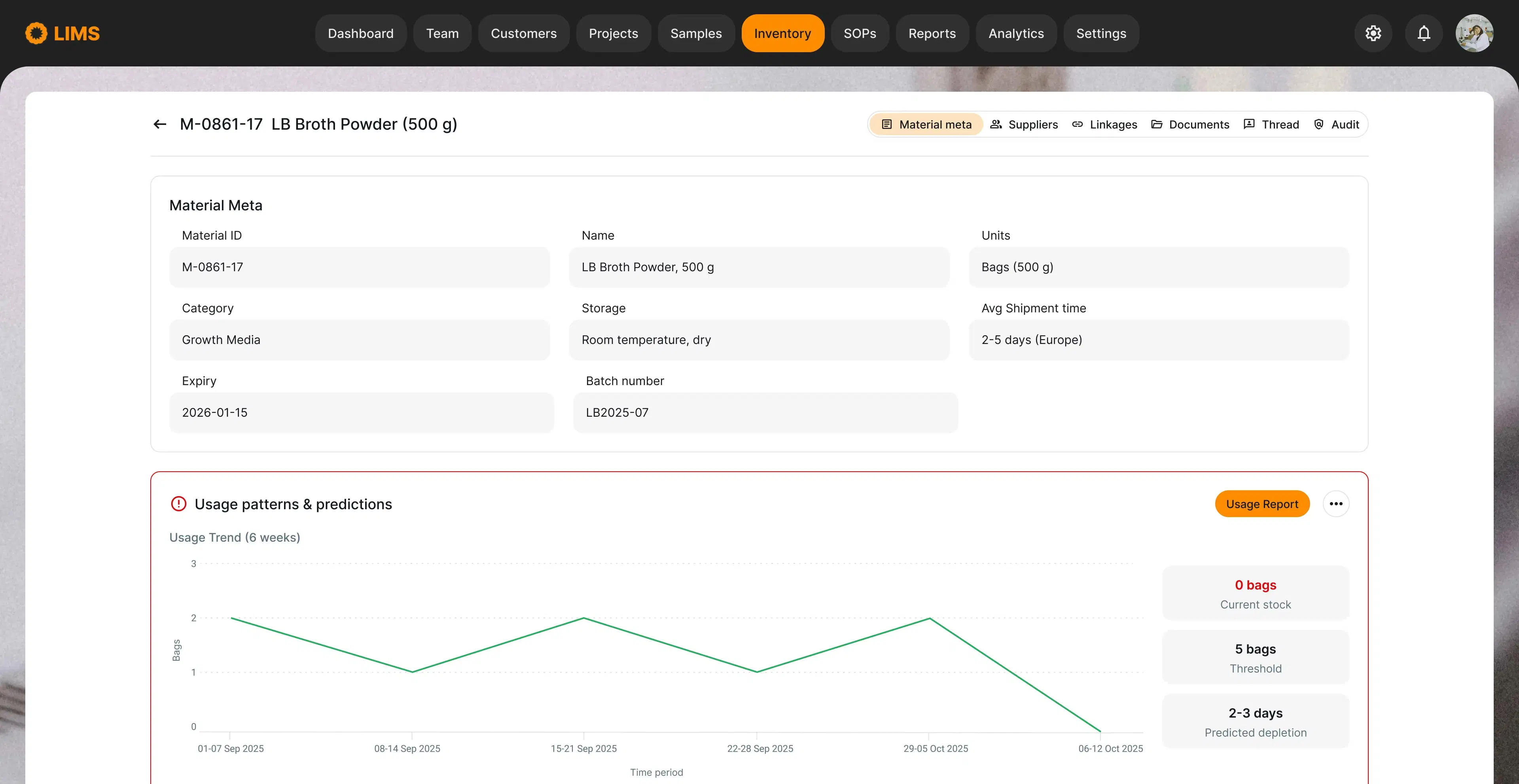Audit trails are the unsung heroes of lab software. They silently record every action, change, and decision, ensuring compliance with regulations like 21 CFR Part 11, GxP and ISO 17025.
Yet, many lab professionals rarely interact with them because the raw logs are dense, cryptic and difficult to read. If you’ve ever opened the Audit Trail tab in a LIMS and thought, “What am I even looking at?”, you’re not alone.
This article explores how labs can make audit trails both compliant and readable, improving workflow efficiency without compromising regulatory integrity.
The typical Audit Trail problem
The typical Audit Trail problem Most LIMS or other lab software capture every system and user action automatically, including timestamps, IDs and technical logs. From a compliance standpoint, this is perfect. Every change is traceable, immutable and auditable.
From a human standpoint? Not so much.
- Screens are packed with cryptic IDs
- Timestamps are often hard to interpret
- Logs are technically correct but unreadable for everyday lab work
As a result, lab teams often rely on manual notes or spend precious time deciphering logs, slowing down workflows and increasing the risk of errors.
Making Audit Trails user-Friendly
The solution is simple: retain the compliance layer while improving readability.
A redesigned audit trail can:
- Highlight who made a change, when and what was changed
- Summarize events in natural, easy-to-read sentences
- Maintain a fully immutable underlying log, untouched for audit purposes
Must-have features for any modern Audit Trail
- Immutable records: once logged, entries cannot be changed or deleted
- Automatic logging: every system and user action is captured in real time
- Full traceability: clearly show who, when and what changed
- Consistent timestamps: standard format and time zone across the system
These are non-negotiable for compliance with 21 CFR Part 11, GxP or ISO 17025.
Nice-to-have features
- Readable summaries: audit data presented in human-friendly sentences
- Filtering and search: by user, project, sample or date range
- Export and share options: one-click download for QA or regulatory review
- Visual timeline view: intuitive representation of event chains for easy discussions
These improvements don’t replace the raw audit data; they simply make it easier for lab staff and auditors to find the right information quickly.
Why readability matters
Improving readability is not just a convenience. It has real-world benefits:
- Lab teams spend less time deciphering logs, focusing on experiments instead
- Collaboration improves because everyone can understand the history of a sample or dataset
- Audits become smoother - auditors can quickly confirm changes without digging through cryptic entries
In short, audit trails should tell your lab’s story, traceable and human-readable.
Conclusion
Whether your lab follows GxP, 21 CFR Part 11 or ISO 17025, the essentials remain the same: immutable, automatic and traceable records. Enhancing readability is the next logical step - turning compliance from a technical checkbox into a real operational advantage.
Readable audit trails are not a luxury. They are a tool to make labs work smarter, collaborate better and pass audits with confidence.














